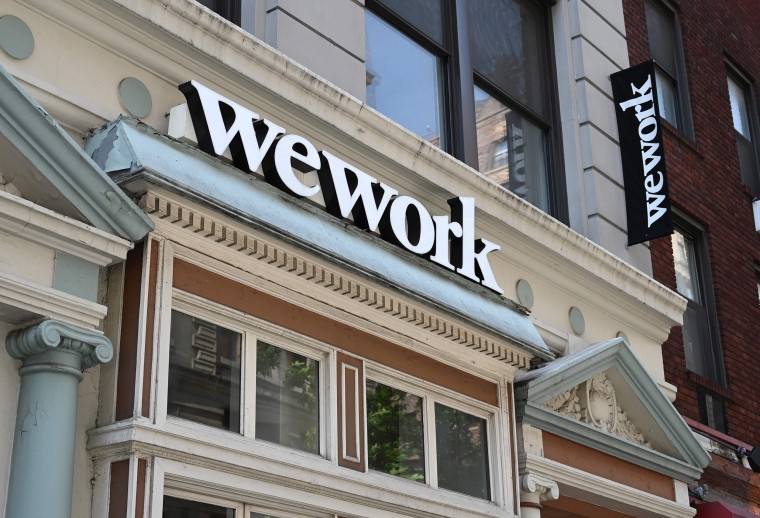WeWork owner The We Company on Wednesday filed with regulators for an initial public offering and published detailed financial statements for the first time that showed it lost almost $700 million in the first half of 2019 while doubling revenue.
The preliminary filing with the U.S. Securities and Exchange Commission takes it a step closer to a planned listing next month and comes at a time when stock markets are in turmoil due to a prolonged trade war between the United States and China.
This year has been the biggest for U.S. IPOs since 2014, with Uber and peer Lyft Inc making their much-awaited market debut.
The ride-hailing rivals, however, have struggled since listing, with investors wary of the pair's billions of dollars in losses and the absence of a timetable to reach profitability.
With its steep losses, WeWork faces some of the same headwinds. Its business model — based on short-term revenue agreements and long-term loan liabilities — has faced investor skepticism.
Still, revenue has surged as the company shakes up office leasing by offering start-ups and entrepreneurs short-term contracts in lieu of traditional long-term leases. It also generates greater revenue per square foot than landlords by squeezing more people into a space.
The company was valued in January at $47 billion in a private fundraising round, according to data provider PitchBook.
The IPO filing provides the most comprehensive financial picture yet of the company co-founded by its chief executive officer, Adam Neumann, in 2010. The company previously reported it lost nearly $2 billion in 2018, as it invests heavily to grow its business.
Among the disclosures in the filing, WeWork reported a net loss attributable to the company of $689.7 million in the six months ended June 30, compared with a loss of $628.1 million a year earlier.
In the same period, revenue more than doubled to $1.54 billion.
The company also did not give a time frame for becoming profitable as it continues to invest in expanding its operations.
"Average revenue per WeWork membership has declined, and we expect it to continue to decline, as we expand internationally into lower-priced markets," the company said in the regulatory filing.
The company, which operates 528 locations in 111 cities across 29 countries, said it expected to "expand aggressively in our existing cities as well as launch in up to 169 additional cities."
Flexible office providers have dominated leasing in major gateway cities, most notably London, New York and San Francisco, a sign of growing demand by companies and not just the startups and entrepreneurs that put coworking on the map.
While WeWork is the flag bearer, several operating models exist. The industry, which JLL estimates will account for 30 percent of leasing in a decade, is likely to end up like hotels with various services and customer niches.
WeWork, whose current investors include Japan's SoftBank Corp, did not disclose how much it is looking to raise in the IPO and what valuation it will aim for.
This will come in an amended IPO filing, which would precede a 10-day IPO roadshow to meet with potential investors.
The company will ultimately look to raise several billion dollars in the IPO following a substantial debt offering, Reuters has reported.
The company intends to list under the symbol "WE."
J.P. Morgan Securities and Goldman Sachs are among a nine-member underwriting team for the IPO.
